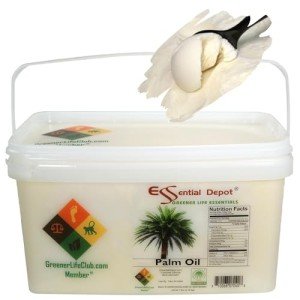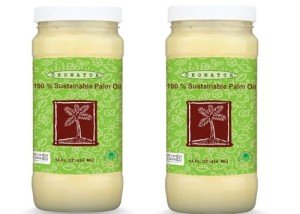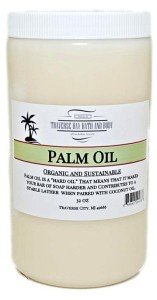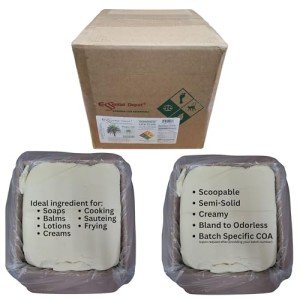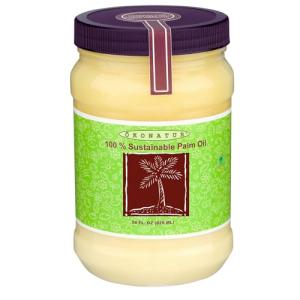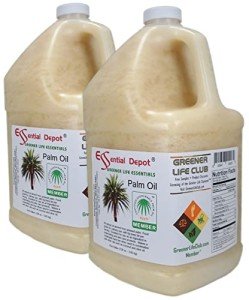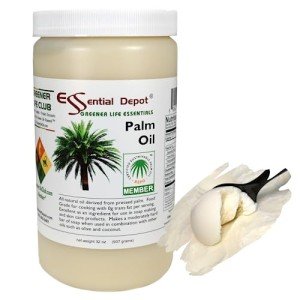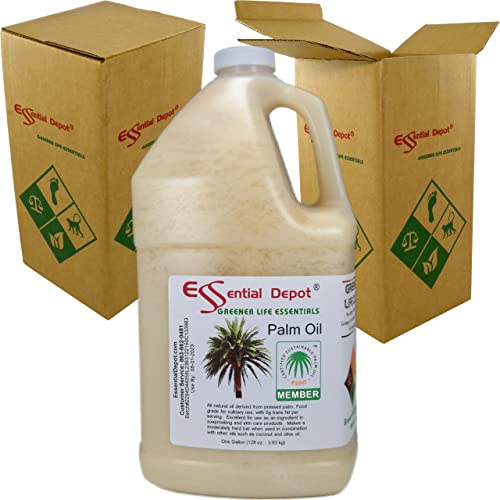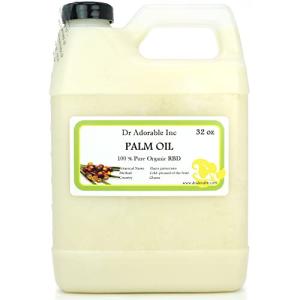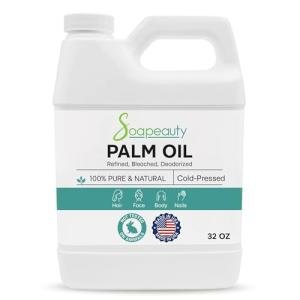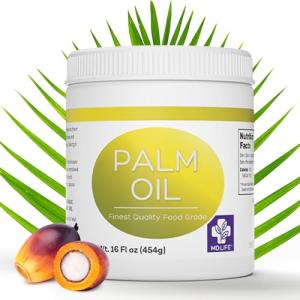Benefits of Palm Oil in Handmade Soaps
-
Rich Lather
Palm oil is a key ingredient in creating a rich, creamy lather in soap. It helps produce larger bubbles and a stable foam, which is a sought-after characteristic for many consumers. Soaps made with palm oil tend to cleanse the skin effectively while maintaining a pleasant texture.
-
Moisturizing Properties
Palm oil is rich in saturated fats, particularly palmitic acid, which helps retain moisture in the skin. This makes palm oil-based soaps a good option for individuals with dry or sensitive skin. The moisturizing effect is more pronounced when combined with other nourishing ingredients such as shea butter or coconut oil.
-
Stability and Shelf Life
Palm oil is naturally resistant to oxidation, which means it has a longer shelf life than many other oils. This is beneficial in handmade soaps, as it helps the product maintain its consistency and effectiveness over time without becoming rancid.
-
Hard Bar of Soap
Palm oil helps create a harder soap bar, which is ideal for use in solid soap bars. This results in soaps that last longer and do not dissolve quickly when exposed to water, offering greater value for consumers.
Palm Oil in Cosmetics
Palm oil also plays a crucial role in the formulation of various cosmetics and skincare products, including lotions, creams, shampoos, and deodorants. Its benefits in cosmetic products include:
-
Skin Conditioning
Palm oil is a popular ingredient in moisturizers and creams due to its emollient properties. It helps soften and smooth the skin, making it a common addition to anti-aging formulations.
-
Stabilizing Agent
Palm oil’s stable composition is useful in the formulation of emulsions, such as creams and lotions, which need to stay uniform and not separate over time. It also contributes to the texture and feel of these products.
-
Gentle on the Skin
The mild nature of palm oil makes it suitable for sensitive skin. It is often included in products designed for those with skin conditions such as eczema or psoriasis, as it is less likely to irritate compared to other harsher ingredients.
-
Natural Source of Vitamin E
Palm oil is naturally high in tocotrienols, a form of vitamin E, which is a powerful antioxidant. Vitamin E helps protect the skin from oxidative damage, promoting healthy, youthful-looking skin.
Environmental and Ethical Issues
Despite the many benefits of palm oil, its widespread use has raised concerns, particularly in relation to its environmental impact and the sustainability of its production.
-
Deforestation
One of the primary concerns about palm oil production is its contribution to deforestation. Large areas of tropical rainforests, particularly in countries like Indonesia and Malaysia, have been cleared to make way for oil palm plantations. This deforestation has led to habitat destruction for wildlife, including endangered species like the orangutan, and contributes to climate change through the release of carbon stored in trees.
-
Biodiversity Loss
The conversion of forests into oil palm plantations threatens biodiversity, as many species lose their natural habitat. The monoculture nature of palm oil plantations also reduces the variety of plant and animal life that can thrive in the area.
-
Labor Rights and Human Welfare
The palm oil industry has been criticized for labor abuses, including poor working conditions and exploitation of workers, particularly in the developing countries where palm oil is grown. Child labor and unfair wages are significant issues in some regions, making ethical sourcing a crucial concern.
-
Water and Soil Pollution
The chemicals used in palm oil plantations, including pesticides and fertilizers, can lead to water and soil contamination, which affects local ecosystems and nearby communities. Additionally, large-scale palm oil farming often requires substantial water use, raising concerns about water scarcity in some regions.
Sustainable Palm Oil: Certifications and Alternatives
In response to these concerns, several initiatives have been launched to promote sustainable palm oil production. The most prominent of these is the Roundtable on Sustainable Palm Oil (RSPO), which certifies palm oil that is produced according to specific environmental and social criteria. RSPO-certified palm oil aims to reduce deforestation, protect wildlife, and improve labor conditions within the palm oil industry.
Consumers interested in ethical and sustainable palm oil can look for products bearing the RSPO certification or those that use palm oil alternatives, such as coconut oil, olive oil, or shea butter. While these alternatives may have similar benefits, they may not always offer the same properties in terms of lather and texture.
Conclusion
Palm oil remains a key ingredient in the formulation of handmade soaps and cosmetics due to its ability to create rich lathers, moisturize the skin, and contribute to the longevity of products. However, its widespread use has significant environmental and ethical challenges that cannot be ignored.
As consumers become more conscious of these issues, it is important to support brands that prioritize sustainability and ethical sourcing. Whether through choosing products with RSPO certification or opting for palm oil-free alternatives, every purchase can contribute to a more sustainable future for the palm oil industry.
By balancing the benefits of palm oil with a commitment to sustainability, we can continue to enjoy the advantages of this versatile ingredient while minimizing its negative impact on the planet and its people.

